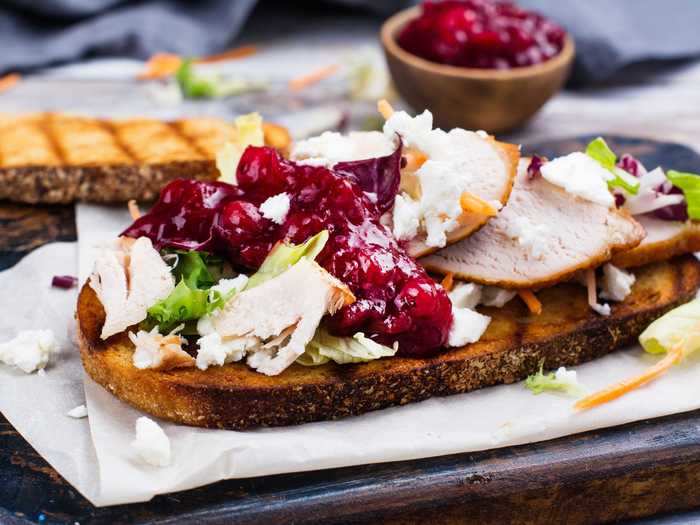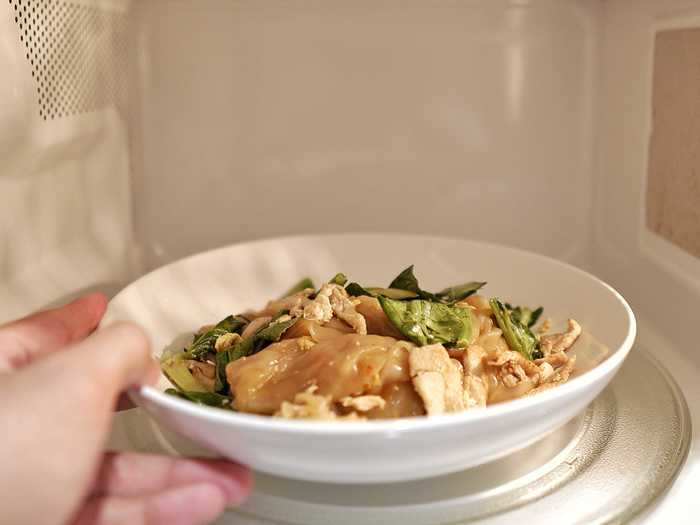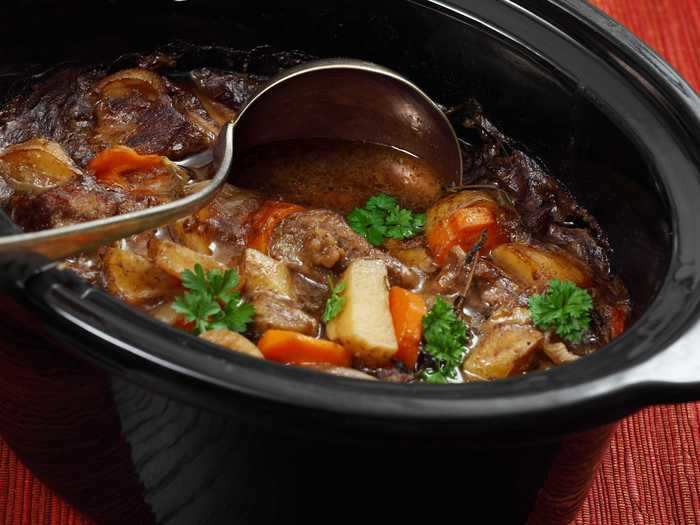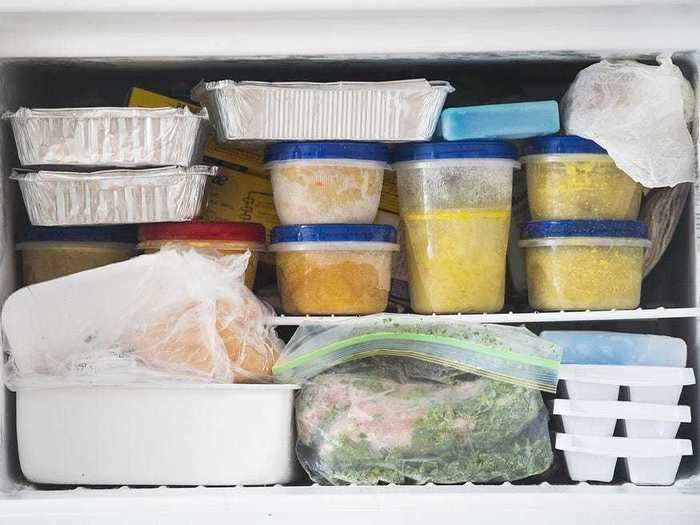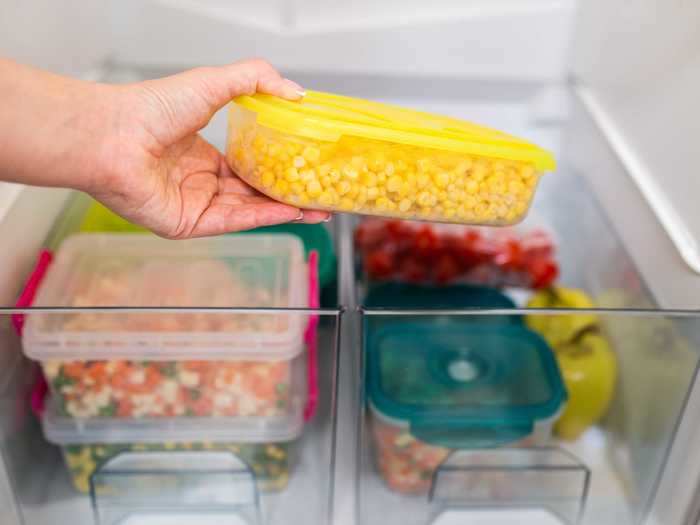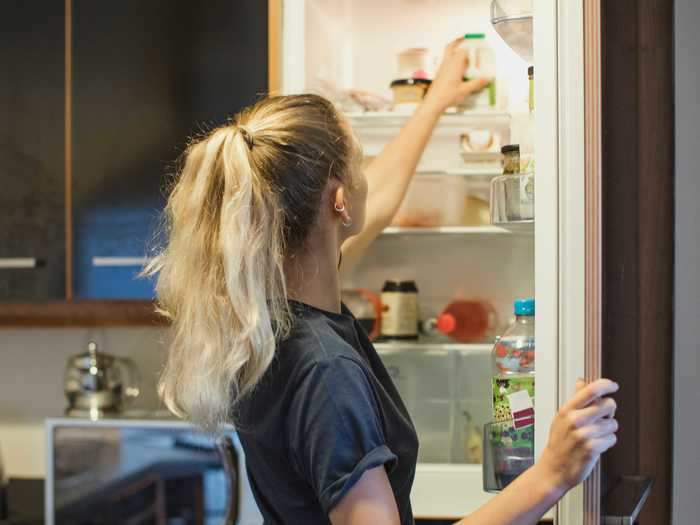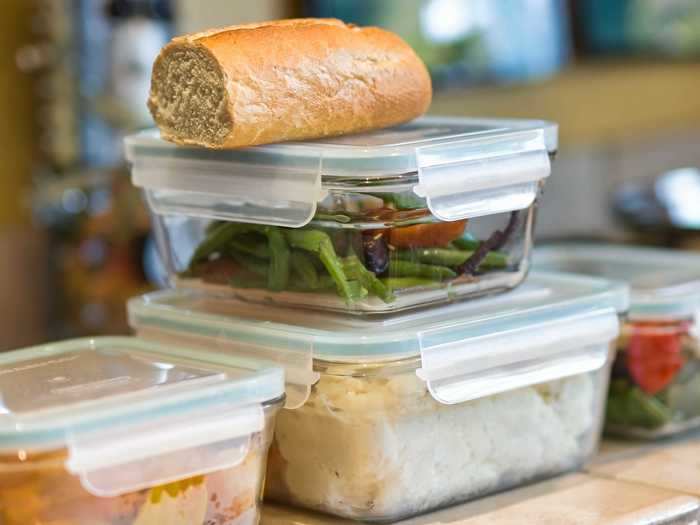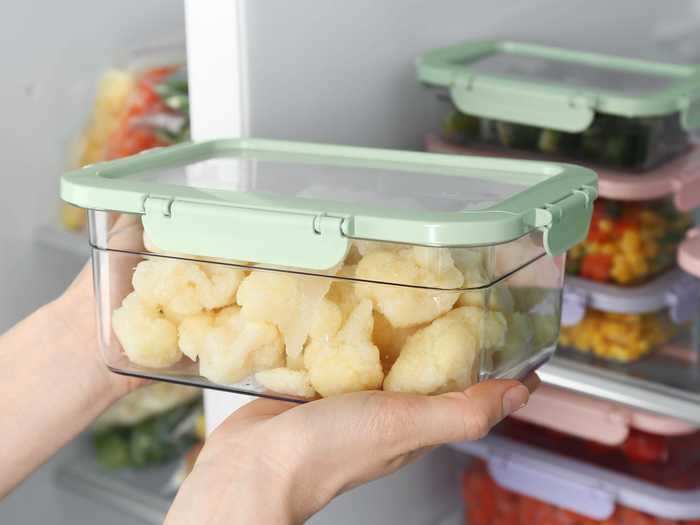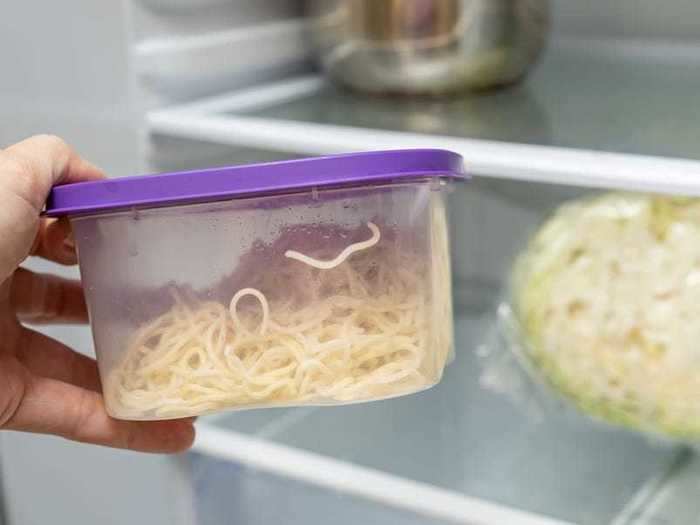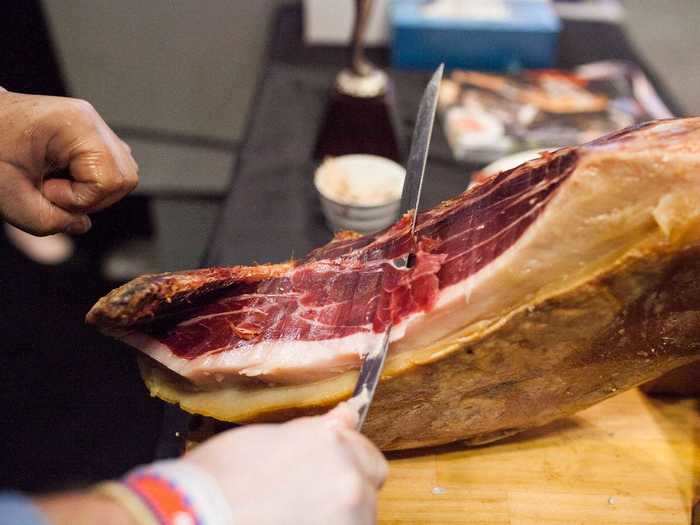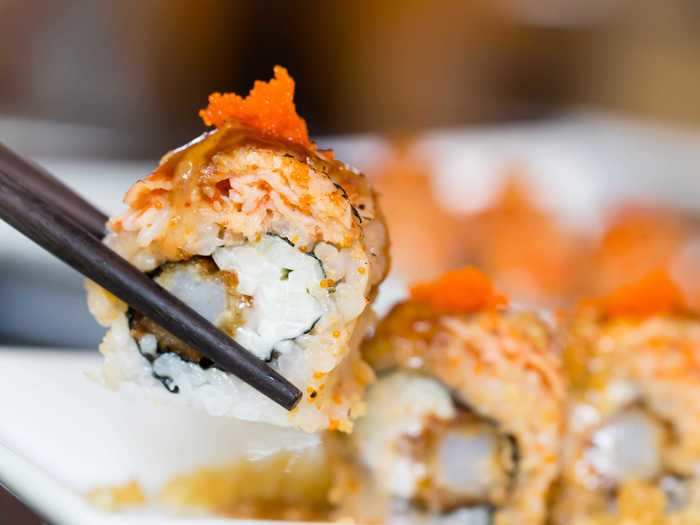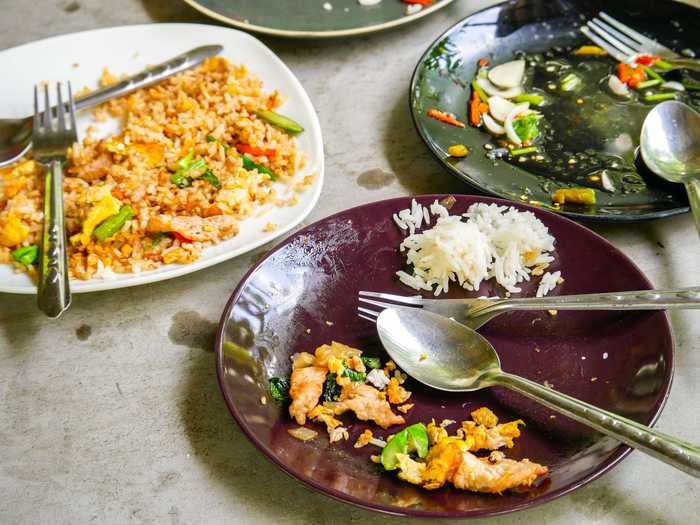Noodles can easily be frozen to reheat at a later time.Shutterstock
- When it comes to getting takeout, it's pretty common to be left with some leftovers after the meal.
- There are quite a few ways to make the food last longer, including refrigerating leftovers immediately, freezing your food, and storing your takeout correctly.
- You should also be thoughtful about what you're ordering so it lasts as long as possible — avoid raw fish and order cured meats when you can.
- Visit Insider's homepage for more stories.
People are now potentially relying more on takeout than ever before, so it makes sense that they would want to make each meal last as long as possible.
According to the FDA Food Code, all perishable foods that are opened or prepared — including takeout or leftovers — should be thrown out after seven days in the fridge, maximum, though some foods expire before then.
However, there are certain ways to make sure you're getting the most out of your takeout, from reheating and freezing food correctly to choosing the right items to order in the first place.
Here are 12 easy ways to make your take-out food last longer.
Read the original article on
Insider
Use your leftovers to make something new.
A Thanksgiving leftovers sandwich.
Ekaterina Markelova/Shutterstock
Another way to get the most out of your leftovers and extend their life is by using them to make something new in the kitchen.
We've all heard of using Thanksgiving leftovers to make a turkey and cranberry sauce sandwich. However, chefs also recommend turning leftovers like pasta into new dishes.
Other popular take-out foods like vegetables or cooked meats can also easily be given new life in stir-fries, Buddha bowls, and more.
It's also a good idea to only reheat the portion you plan to eat.
A person reheating leftovers in the microwave.
Shutterstock
Leftovers tend to lose their quality the more times they are reheated and should only be heated up again once after they are first cooked, according to the USDA.
If you're reheating lasagna, pasta, Chinese food, or any other type of takeout, put your serving onto a plate, reheat it, and either freeze, refrigerate, or discard the rest.
Never reheat your food in a slow cooker. Some foods also don't reheat well in a microwave.
Stew in a slow cooker.
iStock
When it comes to reheating leftovers, cooking them correctly is vital to making sure the end results are safe to eat.
Healthline recommends food should reach an internal temperature of at least 165 degrees Fahrenheit, and that food should be stirred as it reheats to ensure even heating.
Certain kitchen gadgets, like slow cookers and Crock-Pots, aren't an effective way to reheat leftovers and should be avoided. According to NBC News, this method heats food too slowly and can cause food poisoning-causing bacteria to grow.
"When you reheat sandwiches, burgers, or fries, do not use the microwave," Justin Fredrickson told Insider. "Use a toaster oven, oven, or frying pan and disassemble the food item to heat up properly and then re-assemble after the proper cooking technique is applied. For example, re-toast a bun while reheating burger, then add back on the lettuce and tomato."
Freeze any food you might not eat within the next week.
Food stored in the freezer.
Graham Hughes/Shutterstock
The fridge life for most cooked food falls between three days and a week. However, leftovers and takeout can last months if properly stored in the freezer.
According to StateFoodSafety, cooked meat or poultry lasts two to six months in the freezer, chicken nuggets or patties last one to three months, and pizza lasts one to two months.
Don't overcrowd your fridge with leftovers.
Leftovers in the fridge.
iStock
Overcrowding your fridge can restrict airflow and prevent your leftovers and other groceries from staying the correct temperature.
To ensure all your food lasts as long as it can, make sure every item in your fridge has enough space for cold air to reach it, and that the fan and other vents aren't blocked by food.
Make sure your fridge and freezer are set to the correct temperatures.
A person looking in their fridge.
Shutterstock
One of the biggest rookie mistakes when it comes to making food last longer in the fridge and freezer is setting them to the wrong temperature.
According to Consumer Reports, your fridge should hover right around 37 degrees Fahrenheit and your freezer should be set to 0 degrees Fahrenheit.
Some fridge thermometers can vary by as much as 5 degrees, so buying a separate thermometer is a great way to ensure your appliance is set to the correct temperature.
Keep your leftovers in glass storage containers.
Food in glass storage containers.
Shutterstock
"Generally, glass is the most airtight," Sharon Franke, the kitchen appliances and technology director for the Good Housekeeping Institute in New York, told the Washington Post.
Ensuring that your food is stored in an airtight container is the biggest, and perhaps easiest, hack for making food last its full shelf life.
Plus, using glass containers will make it easier to transfer your food from the freezer to the fridge to the oven.
Celebrity nutritionist Keri Glassman previously told Insider that when you use plastic containers, over time you run the risk of chemicals (including BPA) leaching into your food.
Try using small containers to separate and store your food.
A person putting a sealed container of cauliflower into the fridge.
New Africa/Shutterstock
Different foods will last a different number of days in the fridge, so separating them will ensure that items don't go off sooner than they normally would by mixing with foods that have a shorter life.
"Deconstruct the food as much as possible," Amoroso told Insider. "One item will always break down before another and take the rest with it. Get the items cold quickly in a large open container in the fridge, stirring often to speed the cooling process. Then store [the food] covered — preferably in a non-reactive container such as glass."
If you plan to save pasta or noodles, ask for the sauce on the side.
Pasta in a Tupperware container.
Nadezhda Mikhalitskaia/Shutterstock
Excess tomato or other sauces can make noodles soggy and unappetizing — and could lead to a shorter shelf life than if they were left plain or stored separately.
Plain cooked pasta lasts three to five days in the fridge, while pasta in tomato sauce will only last one to two days.
However, be sure to store and freeze pasta or noodles correctly, as freezer burn is common with this type of food, Fredrickson said.
Instead of cooked or fried meats, order cured meats like pancetta, prosciutto, or salami if you can.
A butcher slicing prosciutto.
Sydney Kramer
Cured meats tend to last longer than standard cooked meats.
Meats like prosciutto, salami, or pastrami will last up to 10 days in the fridge versus three to five days for other deli meats, making them longer-lasting options for sandwiches.
However, it's best to order the meat on its own to make your own sandwiches.
"Sandwich and wrap-type items do not hold well," Anthony Amoroso, an executive chef at MGM Resorts International, told Insider.
According to Justin Fredrickson, executive chef at Mandalay Bay, fried meats also don't tend to hold up well.
"Anything fried — fast food, burgers, french fries, hard shell tacos, or any foods that have bread or croutons — will become soggy," he told Insider.
Stay away from ordering foods like sushi or other uncooked animal products that will go off faster.
Sushi.
Shutterstock
It may come as no surprise that raw animal products like uncooked meat or fish will go off much faster than cooked animal products.
If your goal is to get multiple days of meals out of your takeout order, stay away from things like sushi or tartare, which is uncooked.
According to StateFoodSafety, raw hamburger, ground beef, turkey, veal, pork, lamb, or poultry will only last one to two days in the fridge. According to Healthination, sushi or other dishes containing raw fish need to be consumed within 24 hours.
If you're craving sushi and want it to last longer, consider ordering rolls with cooked fish or just fresh veggies.
Refrigerate any takeout leftovers immediately.
Half-eaten food on dinner plates.
Ratchanee Sawasdijira/Shutterstock
One of the easiest ways to make your takeout last as long as possible is to serve exactly how much you're going to eat and then put any leftovers into the fridge or freezer.
Certain ingredients like meat, fish, or cheese can start to go off if left out on a counter. Leftovers with these ingredients should be put in the fridge or freezer immediately to extend their shelf life.

